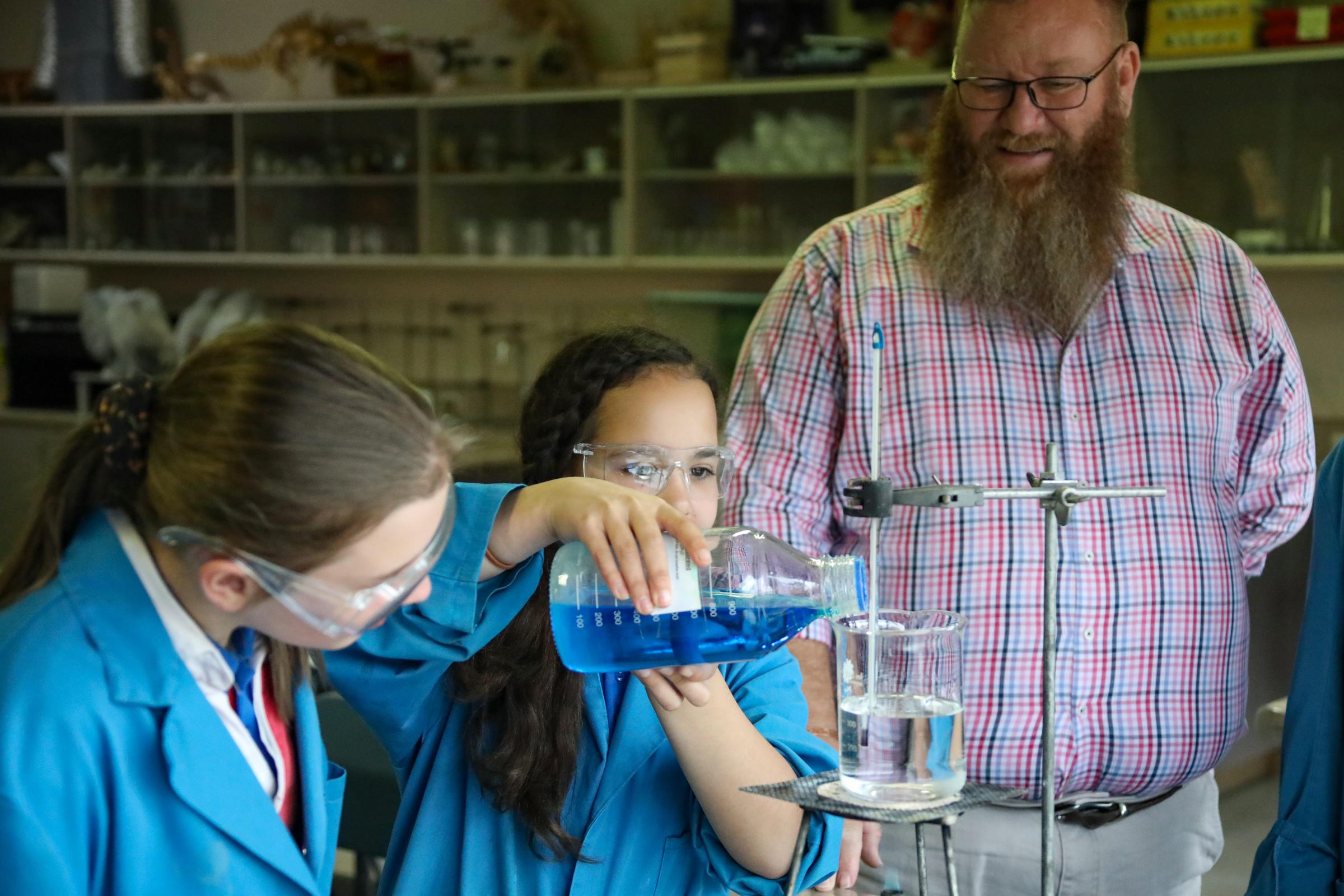Learning and Teaching
Ms Jodie Connell - Deputy Principal

Learning and Teaching
Ms Jodie Connell - Deputy Principal
With the term coming to a close, I am sure we are all grateful for the upcoming Easter break. Upon reflection of this term; there has been lots going on. Assessments have been in full swing and students have been challenged in their understanding of the key concepts taught across a range of learning areas, and have had the opportunity to demonstrate to their teachers what they understand and know and what they are ready to learn next.
Working together to achieve success is vitally important. We keep you informed of your child’s progress via our continuous feedback model. You can check your child’s progress anytime through the Parent Access Module (PAM). You can see upcoming tasks, overdue tasks, task results, calendar events, excursion permission and attendance all in one place. As the term draws to a close, I encourage all parents to ensure that they have logged into PAM and are checking how the students are progressing with their learning. All students should have feedback on at least one task they have completed this term.
Throughout the Term, we have encouraged students to take ownership of their learning. Many of the students should see the interim report as validation of their hard work and commitment to their learning journey. Sharing the report with your child and having a discussion about their learning, hopefully, leads to the student thinking deeply about what they are doing well, and where they need to make improvements. To achieve success we must, however, have high expectations of ourselves, develop resilience strategies, be courageous and through this, as a College, we can build a culture of high achievement. These high expectations come in many forms; how we treat and value one another, how we wear our uniform; and the discipline we show in our studies.
NAPLAN Tests
Congratulations to all Year 7 and 9 students on completing their NAPLAN tests, I was extremely impressed at the way most students conducted themselves during this testing period. The National Assessment Program – Literacy and Numeracy (NAPLAN) assesses literacy and numeracy skills that are essential for every child to progress through school and life. Students in Years 3, 5, 7 and 9 participate in the annual NAPLAN tests in reading, writing, language conventions (spelling, grammar and punctuation) and numeracy. The assessment provides parents and schools with an understanding of how individual students are performing at the time of the tests. Results from the recent testing will be sent home later in the year.
NAPLAN is just one aspect of a school’s assessment and reporting process – it does not replace ongoing assessments made by teachers about student performance. NAPLAN also provides schools, education authorities and governments with information about how education programs are working and whether students are achieving important educational outcomes in literacy and numeracy.
What does NAPLAN assess?
NAPLAN assesses literacy and numeracy skills that students are learning through their regular school curriculum. All government and non-government education authorities have contributed to the development of NAPLAN materials. Students are assessed on the same literacy and numeracy curriculum content, regardless of whether they complete the tests online or on paper. Results for both formats can be reported on the same NAPLAN assessment scale.
Now that the test is completed what can I do to support my child?
On its own, NAPLAN is not a test that can be studied for, and students were not expected to do so. You can support your child by reassuring them that NAPLAN is just one part of their school program. A reminder to continue to review teacher feedback on PAM and to discuss these results with your child. Discussing strategies with them and their teacher for achieving ongoing improvement is a meaningful conversation to support their learning.
Parent–Student–Teacher Interviews
Many thanks to the parents who attended parent-teacher night on Thursday night. A final reminder there is one more parent-teacher night opportunity next week. Virtual Parent–Student–Teacher interviews will be held via Google Meets on Wednesday 4th April 2023 between 4.00 pm and 6.30 pm. Bookings for these will close at 5.00 pm Tuesday 3rd April.
Opportunities for Senior School Students (Years 11 and 12)
Monash Virtual School offers free online learning opportunities designed to enhance educational equity. The sessions are interactive revision classes; and they are offered online from 4:30 pm via Zoom in the following subjects (Units 1 – 4); Biology, Chemistry, Physics, Psychology, General Mathematics, Mathematical Methods and Specialist Mathematics. To register or for more information please visit their website.
Monash Virtual School VCE Revision Sessions
Maths Pathways Program (Years 7 and 8)
We are excited to continue the great developments in our Maths department. Traditionally in schools, it has been extremely difficult for one teacher to cater to the learning needs of 25 individual students. As a result, not every student has experienced success in maths, with many students finding it particularly stressful or difficult. Our teaching team is now working very hard to change that, by evolving the way we teach maths so that instead of all students learning the same topic at the same time, each student will focus on only what they are ready to learn. This means that every student can experience success in maths.
Our teaching team is working with evidence-based, data-informed strategies that help to target the specific learning needs of each child. They can expect to see a few things in their new classroom that might be a bit different from their previous maths experience:
If you would like to do a little more reading on the ways you can help your child achieve their true potential in the maths classroom, please click on one of the links below:
Parents’ Beliefs about Math Change Their Children’s Achievement - YouCubed
Why saying “I’m not good at maths” is just not good enough!
Wishing everyone a safe, happy and holy Easter break.